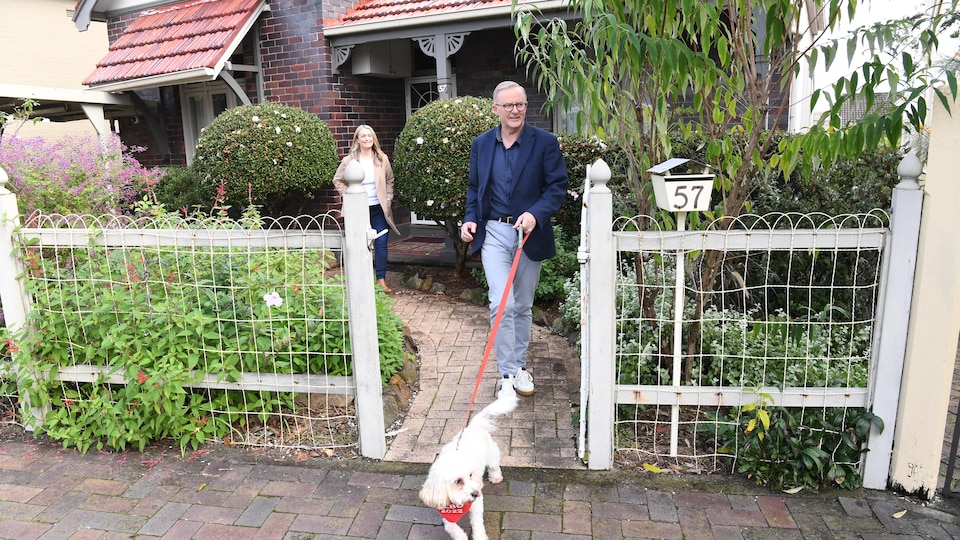Labor’s Anthony Albanese, who is set to become Australia’s prime minister after his legislative victory, vowed on Sunday to fix his country’s image, which is widely seen abroad as lagging behind in the fight against climate change.
I really want to change the country, said Mr. Albanese, who would take his seat on Monday and fly shortly afterwards to Tokyo. He will take part there on Tuesday at the Quad summit (United States, Japan, India, Australia), and will meet separately with his Indian counterparts Narendra Modi and Japanese Fumio Kishida, as well as US President Joe Biden.
It allows us to let the world know that there is a change of governmenthe told reporters. There will be some policy changes, specifically regarding climate change and our engagement with the world on these issues.He added.
But two days before this first official trip abroad, Mr Albanese was still waiting on Sunday to find out if his Labor Party would have an absolute majority in the Australian Parliament, or if he would have to look for allies to govern.
According to partially official results, Labor could now count on Sunday with 74 seats in the House of Representatives, and had a partial lead in a 75th constituency.
The absolute majority (76 seats) in the House, which has 151 representatives, therefore seems to be within their reach, the result is still uncertain in the more than ten constituencies.
The people of Australia voted for changecelebrated on Sunday Anthony Albanese, 59, whose victory ended nine years of Conservative government.
The Liberal coalition of outgoing Prime Minister Scott Morrison has lost many seats across the country. But he had his worst defeat in the constituencies he has so far cared for, facing a handful of independent candidates.
These candidates are labeled tealsa term that means teal but also refers to the color between blue (conservatives) and green (ecologists). Most of them are women elected to pro-environment, anti-corruption and gender equality programs.
Outgoing Finance Minister Josh Frydenberg was notably embarrassed at his Melbourne stronghold of teal Monica Ryan.
Ms Ryan said she was ready to support Mr Albanese’s government if it was committed to a target of 60% reduction in greenhouse gas emissions by 2030, and if it created six months of a powerful federal anti-corruption agency. .
I’m really looking forward to working with himhe said in an interview on a television station on Sunday.
Mr Albanese has promised to reduce emissions by 43% by 2030. His predecessor has been criticized for staying at a target of -28% in 2030 compared to 2005.
A superpower renewable energy
Ang teals exploited the anger of the wealthy suburbs of Sydney and Melbourne over Scott Morrison’s unconditional support for the coal industry, despite three years of fire, drought and floods exacerbated by global warming that changed the lives of millions of people.
In his victory speech, Anthony Albanese promised to make Australia Australia superpower renewable energy. But so far he has remained deaf to calls to end coal, which remains a driving force in the country’s economy and many Labor supporters.
His success has been praised by the leaders of several Pacific islands, most of whom themselves are at risk of climate change.
With your many pledges of support for the Pacific, nothing is more welcome than your plan to prioritize climate. The common future of our people depends on itsaid Fiji’s Prime Minister Frank Bainimarama.
The climatoscepticism displayed by the previous Australian prime minister has exacerbated relations between Canberra and its neighbors and allies in the Pacific, a region where China seeks to expand its influence.
Source: Radio-Canada
